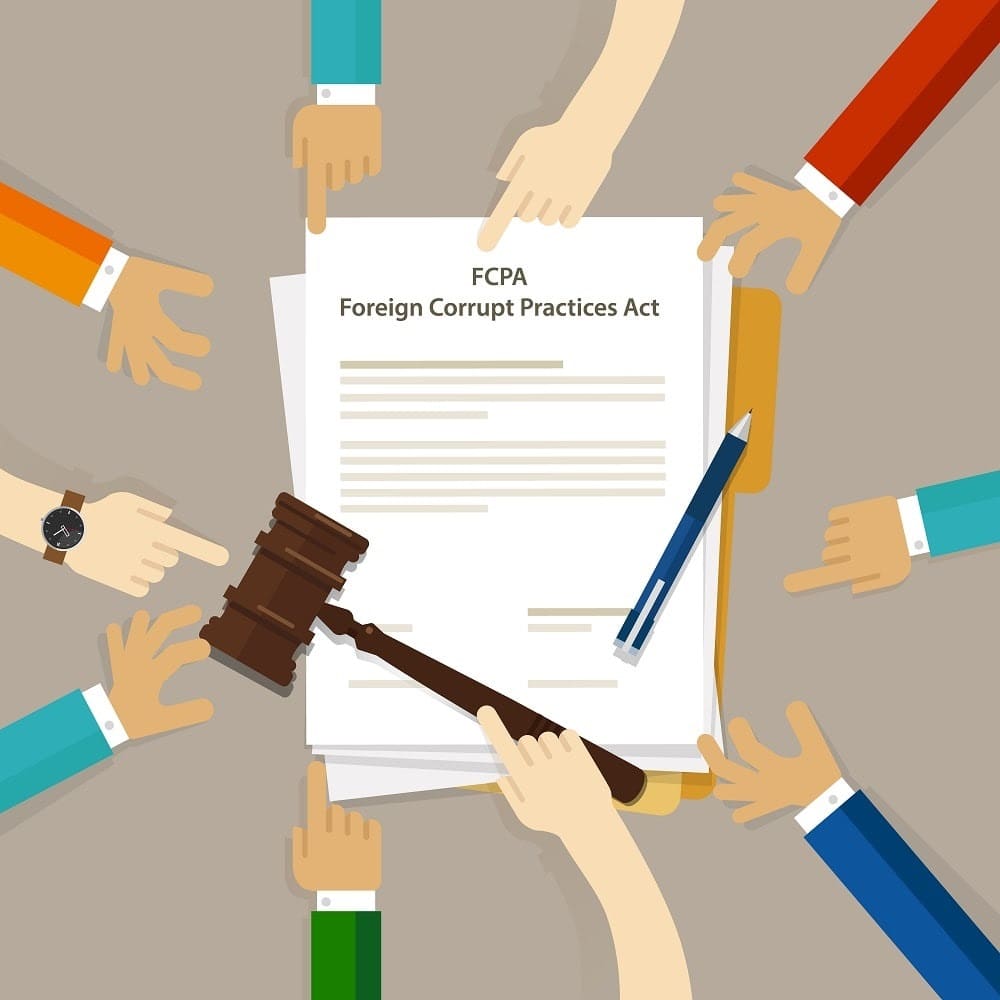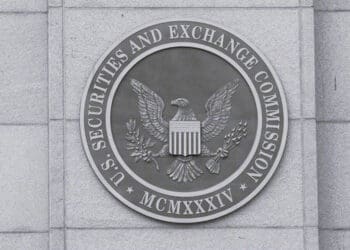The History of FCPA Enforcement, Part 1
Anne Eberhardt, Senior Director at Gavin Solmonese and an expert in FCPA, forensic, compliance, fraud and corruption investigations, offers a brief history of the FCPA. In this first installment, she provides historical context for the regulation, discusses its 1977 enactment and touches on the international community’s response.
On March 15, 2018, Eberhard Reichert pleaded guilty to conspiring to pay tens of millions of dollars to bribe Argentine government officials in violation of the Foreign Corrupt Practices Act (the FCPA). Mr. Reichert, a German citizen, was arrested last year in Croatia. He and seven others are being criminally prosecuted for FCPA crimes committed by Siemens AG, the German engineering conglomerate. The U.S. Justice Department and the SEC settled their FCPA case against Siemens for $800 million in 2008, and it remains one of the largest penalties ever assessed in the history of FCPA enforcement.
A little over a century ago, Siemens bid on a project to build a power plant to service the copper mine in Chuquicamata, Chile. The company’s website reports that “Siemens won out over mighty competitors from North America and Great Britain.” The website is silent as to whether the company obtained this contract by bribing Chilean public officials, but if it had, it is inconceivable that in 1913, U.S. regulators would have launched an investigation into the activities of this German conglomerate operating in Latin America.
So how did the U.S. transform itself into the world’s foremost anti-corruption cop? After all, the history of the United States is hardly a story of a nation of people instinctively averse to corruption in comparison to, say, the Swedes or the Danes.
The 19th and early 20th centuries were notoriously corrupt periods in U.S. history. During the post-Civil War period known as “the Gilded Age,” brazen political machines such as Tammany Hall in New York provided votes in exchange for political patronage, while so-called robber barons lobbied politicians to limit government regulation. The construction of the transcontinental railroads brought corruption scandals involving stock fraud and kickbacks to Congressmen, and in 1868, the New York state legislature passed a bill that essentially legalized bribery.
But it took much more than a sea change in Americans’ attitudes toward public corruption for unelected U.S. officials to believe it was their duty to pluck, from his vacation in Croatia, a German citizen, formerly employed by a German company conducting business in Argentina, to face charges in the Southern District of New York for violations of U.S. law.
What a Difference a Couple of World Wars and a Cold One, a Great Depression and an Election Scandal Make
When regulators initiate proceedings under the FCPA, the rationale is usually predicated on the fact that the offenders are SEC registrants and/or are transacting in U.S. dollars. The case against Siemens was largely made because its stock traded on the NY Stock Exchange. (Siemens has since delisted its stock and deregistered from its reporting obligations to the SEC.)
The SEC did not even exist in 1913. It would be established during the Great Depression by the Securities Exchange Act of 1934, which “…was designed to restore investor confidence in [the] capital markets by providing investors and the markets with more reliable information and clear rules of honest dealing.”[1] And of course, in 1913, the U.S. dollar was not yet the reserve currency it would become after World War II when the Bretton Woods agreement established a dollar-based international financial system.
But it was the Watergate scandal of the early 1970s, in the latter stages of the Cold War, that provided the impetus for passing the FCPA.[2]
The investigations following the Watergate scandal revealed that corporations had made illegal political contributions, both domestic and foreign, which were concealed in secret slush funds. This raised concerns that these companies’ books and records were not being accurately reported in their SEC filings.
Interestingly, though, the most important concern seems to have stemmed from the negative effect foreign bribery had on the image of the United States abroad and on its foreign policy framework during the Cold War.
In the hearings that led to the adoption of the FCPA, Congressional leaders frequently expressed the sentiment that this was a time for a renewal of moral leadership and that there was an obligation to set a standard of honesty and integrity in business dealings both at home and abroad.
In 1975, the Subcommittee on Multinational Corporations, chaired by Senator Frank Church, held hearings investigating allegations of foreign bribery against two oil companies (Gulf and Mobil) and two defense contractors (Northrop and Lockheed). Reports that Lockheed had made bribes in Japan, the Netherlands and Italy were especially vexing to lawmakers because the company had received a federal loan guarantee of $250 million to help keep it solvent.
Senator Frank Church commented:
“The large and steady gains made by the Italian Communist Party in recent elections are due in no small part to the fact that it is believed to be the only non-corrupt political force in the country, while the other parties are seen as the handmaidens of foreign and domestic financial interests…
Payments by Lockheed alone may very well advance the communists in Italy… The Communist bloc chortles with glee at the sight of corrupt capitalism.”
We may very well chortle ourselves at the image Senator Church conjured of the Italian Commie apparatchik posing as a paragon of anti-corruption rectitude, but even President Carter cited the foreign policy implications of the FCPA in his public comments upon signing the Act into law.[3]
“I share Congress[’s] belief that bribery is ethically repugnant and competitively unnecessary. Corrupt practices between corporations and public officials overseas undermine the integrity and stability of governments and harm our relations with other countries. Recent revelations of widespread overseas bribery have eroded public confidence in our basic institutions.”
He then emphasized the importance of accurate SEC reporting before urging the international community to join the global effort to combat bribery.
“This law makes corrupt payments to foreign officials illegal under United States law. It requires publicly held corporations to keep accurate books and records and establish accounting controls to prevent the use of ‘off-the-books’ devices, which have been used to disguise corporate bribes in the past….
These efforts, however, can only be successful in combating bribery and extortion if other countries and business itself take comparable action. Therefore, I hope progress will continue in the United Nations toward the negotiation of a treaty on illicit payments. I am also encouraged by the International Chamber of Commerce’s new Code of Ethical Business Practices.”
It would take another 20 years for the international community to take up President Carter’s challenge, when the Organisation for Economic Co-operation and Development signed the Convention on Combatting Bribery of Foreign Public Officials in International Business Transactions in 1997. It would be another 13 years before the U.K. enacted its own version of the FCPA, the U.K. Bribery Act of 2010.
The FCPA was the very first law of its kind in the history of mankind; no other nation or empire had ever criminalized the payment of bribes in foreign jurisdictions. Its agenda was sweeping, a blend of concern for public integrity, Cold War realpolitik and accurate financial reporting. But once it was passed, it remained a barely-used tool of U.S. law enforcement. It is only in recent times that the FCPA has come to be the instrument of state terror we have all grown to know and love. In the next installment of this series, I will discuss some of the reasons the FCPA came to be used so aggressively in the mid-2000s.
Read Part 2.
[1] SEC Website, What We Do, Creation of the SEC, https://www.sec.gov/Article/whatwedo.html#create
[2] I am indebted to Mike Koehler’s blog, and in particular to his article from which I have drawn much of the material reported here on the creation of the FCPA: The Story of the Foreign Corrupt Practices Act (December 5, 2012), Ohio State Law Journal, Vol. 73, No. 5, 2012. Available at SSRN: https://ssrn.com/abstract=2185406
[3] Jimmy Carter: “Foreign Corrupt Practices and Investment Disclosure Bill Statement on Signing S. 305 Into Law,” December 20, 1977. Online by Gerhard Peters and John T. Woolley, The American Presidency Project. http://www.presidency.ucsb.edu/ws/?pid=7036



 Anne Eberhardt, CFE, CAMS, is a Senior Director in the Valuation and Litigation Consulting practice at
Anne Eberhardt, CFE, CAMS, is a Senior Director in the Valuation and Litigation Consulting practice at 






